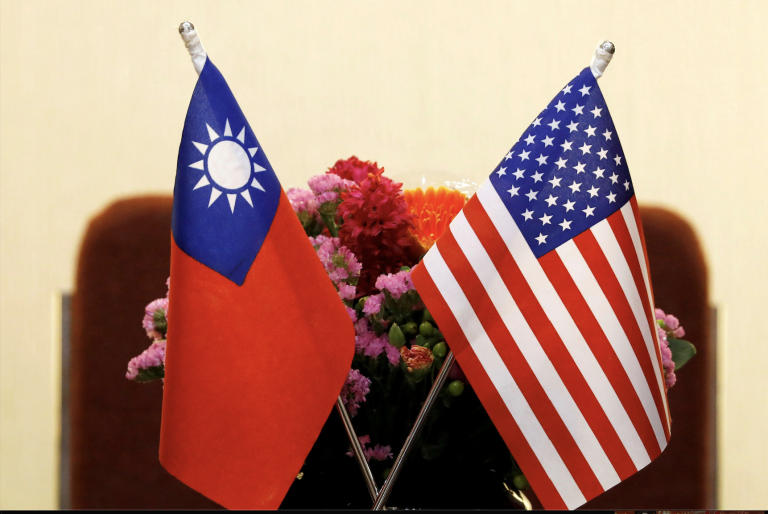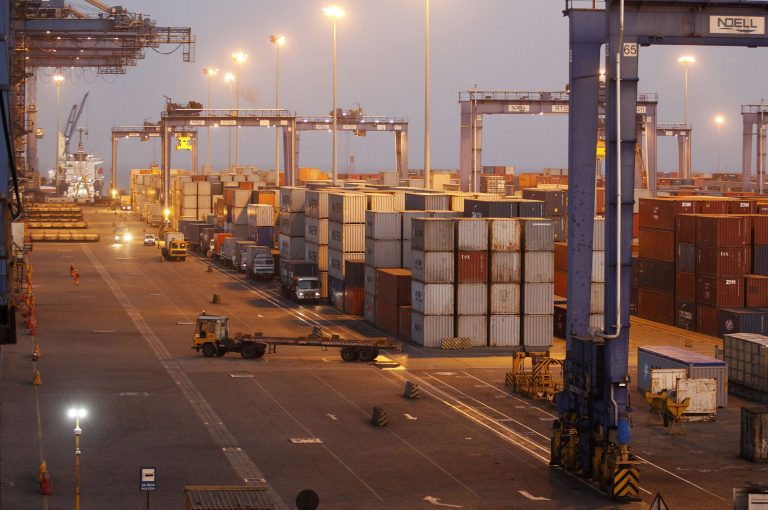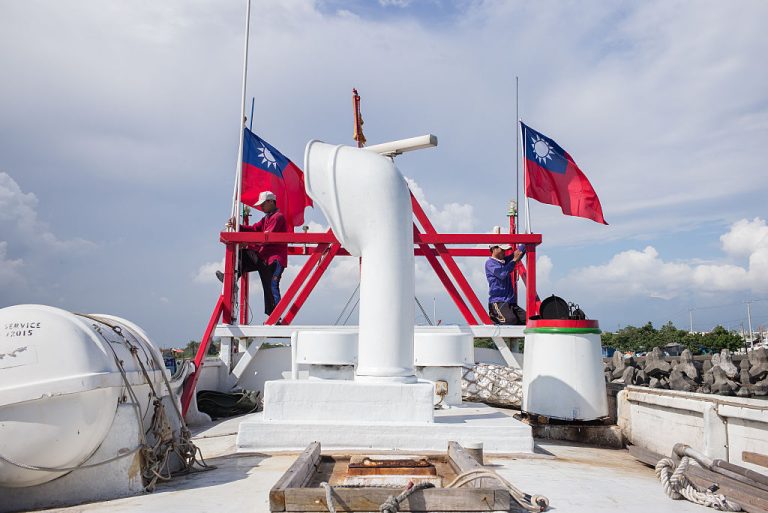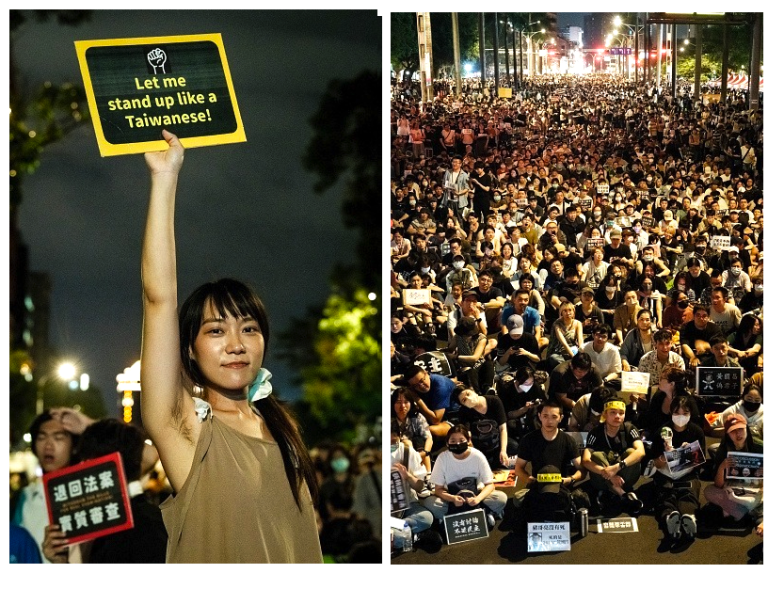As Taiwan prepares for its presidential election this weekend, the Biden administration is poised to send a delegation of former senior officials to Taiwan, according to a senior administration officer. The move, which signals a continuation of U.S. engagement in a region fraught with tension, will be an “unofficial visit,” the officer said on Jan. 10.
The delegation will visit the self-ruling island shortly after the election, the officer said, adding that the visit underscores Washington’s commitment to direct engagement as the “most effective way” to communicate its policies and support to the new Taiwanese government.
The officer, who spoke to the Associated Press (AP) under the condition of anonymity, emphasized that the delegation hopes to “contribute positively to peace and stability” in the Indo-Pacific region, and will involve ongoing “contingency conversations” with Washington.
MORE ON THIS: Under Beijing’s Shadow, Taiwan Heads to the Polls to Elect a New President and Parliament
The movie is particularly significant given the increasingly delicate and complex relationship among the U.S., Taiwan, and China — especially amid heightened tensions surrounding Taiwan’s election. The Biden administration is also actively engaging with Beijing to manage potential conflicts and avoid unintended escalations, the officer added.
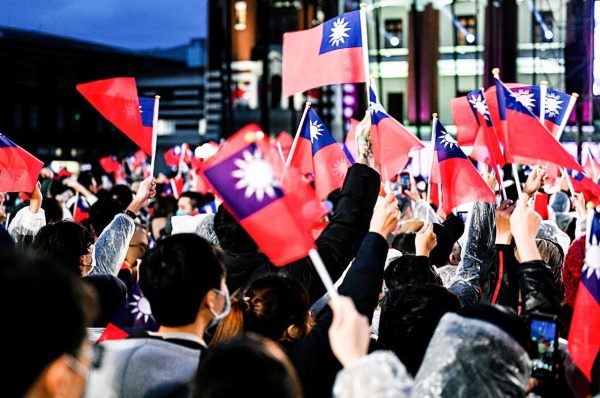
Beijing’s stance
Success
You are now signed up for our newsletter
Success
Check your email to complete sign up
Meanwhile, China, which views Taiwan as an integral part of its territory under its “One-China” policy, has expressed firm opposition to any official exchanges between the U.S. and Taiwan. Mao Ning, a spokesperson for the Chinese Foreign Ministry, avoided calling the planned visit an “official exchange,” instead labeling it as a “matter of internal concern.”
Mao’s measured response comes in contrast to Beijing’s vehement reaction to former U.S. House Speaker Nancy Pelosi’s visit to Taiwan in August 2022, which triggered military demonstrations including missile launches and a blockade of the island.
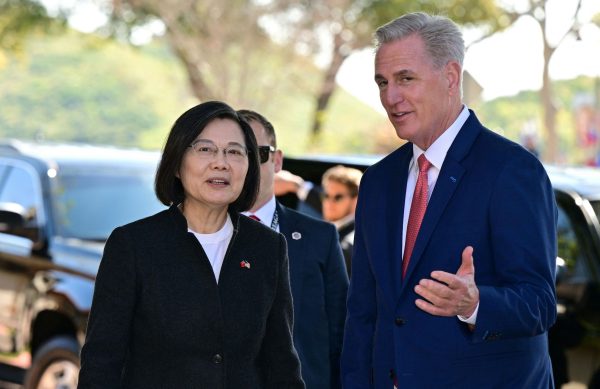
Taiwan’s outgoing President Tsai Ing-wen’s visit to the U.S. last year also stirred discontent within the Chinese government. During and following the visit, which saw Tsai meet with former U.S. Speaker Kevin Mccarthy and other high-ranking officials, resulted in China’s Foreign Ministry calling the meetings a “breach of diplomatic protocols” and an “infringement on its sovereignty.”
MORE ON THIS: Taiwan’s President Tsai Ing-wen Arrives in the US, Defying Beijing’s Protests
But still, the Taiwan issue remains a focal point of sensitivity in U.S.-China relations, as evidenced by Chinese leader Xi Jinping’s remarks to President Biden last November — where he called China’s reunification with Taiwan a “most sensitive issue.”
Formally known as the Republic of China (ROC), Taiwan has preserved its de facto independence and self-governance; its government once ruled all of China before communist rebels overtook the mainland in 1949. While Washington does not recognize Taiwan as an independent nation, it nonetheless continues to hold informal relations with it.
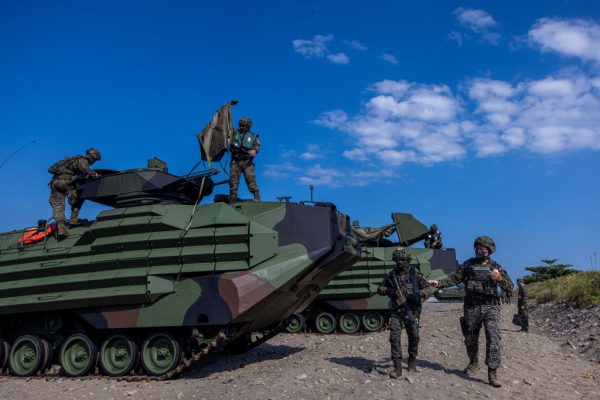
This, coupled with the Taiwan Relations Act (TRA) of 1979, commits U.S. support of Taiwan’s defense capabilities in the form of weaponry and intel should Beijing try and mount an invasion of the island.
Despite the U.S. remaining officially neutral on Taiwan’s statehood, it insists on a peaceful resolution of differences, with Biden reiterating opposition to unilateral changes in the Taiwan Strait’s status quo. Notably, the Biden administration has not endorsed any political party or candidate in Taiwan’s election.
RELATED: Xi Touts ‘Reunification’ With Taiwan as ‘Inevitable’ During Mao Commemoration in Beijing
The White House also walked back several comments from Biden where he stated that the U.S. would come to Taiwan’s defense in the event of a PRC invasion — stating that the president’s comments did not reflect a change in policy regarding Taiwan.
Taiwan’s electoral dynamics
The presidential race in Taiwan is closely watched, with Lai Ching-te of the pro-independence leaning Democratic Progressive Party as the front-runner, followed by Hou Yu-ih of the Kuomintang party; neither of which supports independence, nor unification with mainland China. Beijing has been vocal in its opposition to Lai, labeling him a “Taiwan independence element” and hinting at a stark choice for Taiwanese voters between peace and potential conflict.
Meanwhile, Taiwanese Foreign Minister Joseph Wu highlighted the international attention on the elections, while criticizing China’s interference. “Beijing should stop messing with other countries’ elections & hold their own. Let the #Chinese people freely choose their leaders,” he said on social media platform X (formally known as Twitter).



